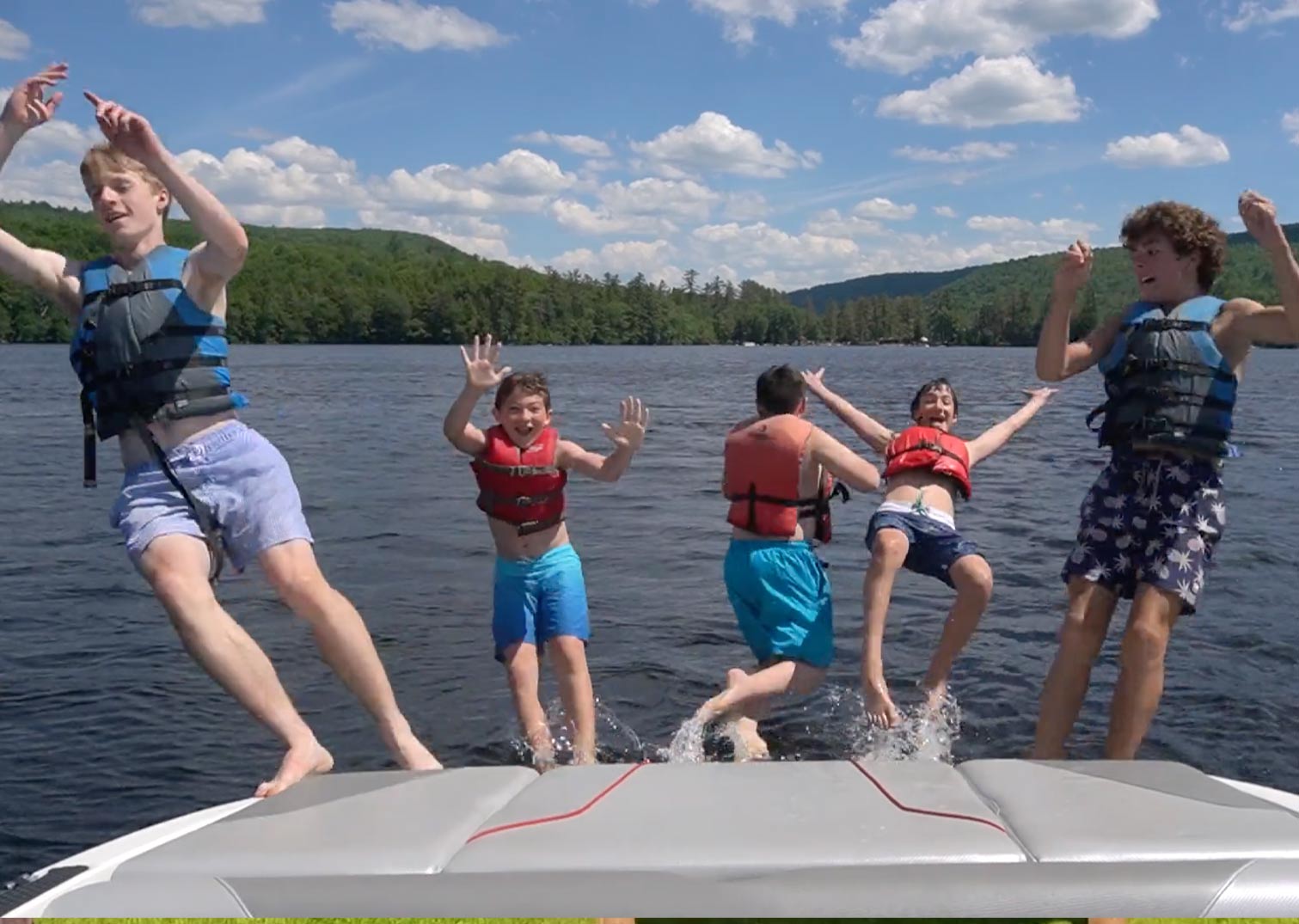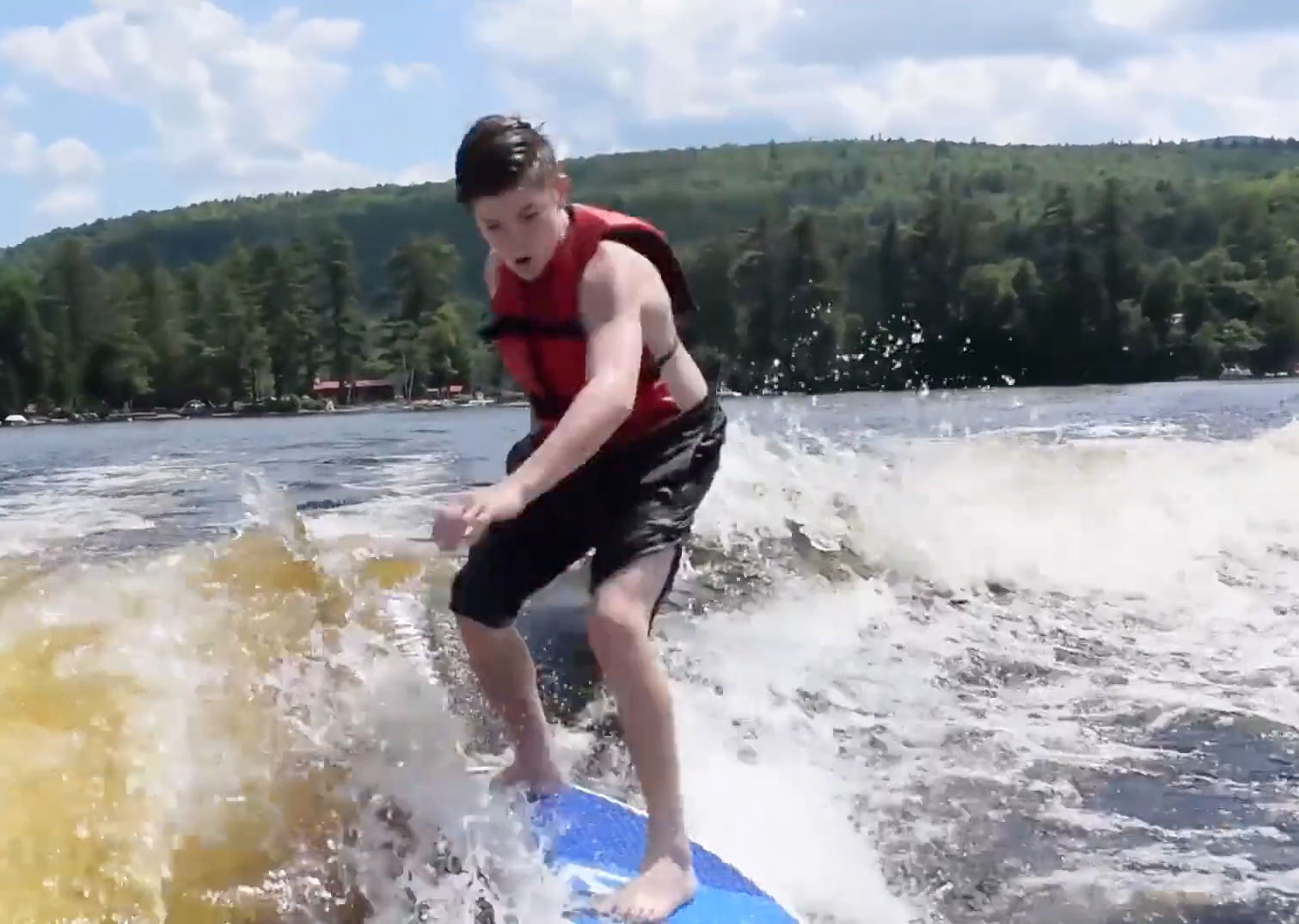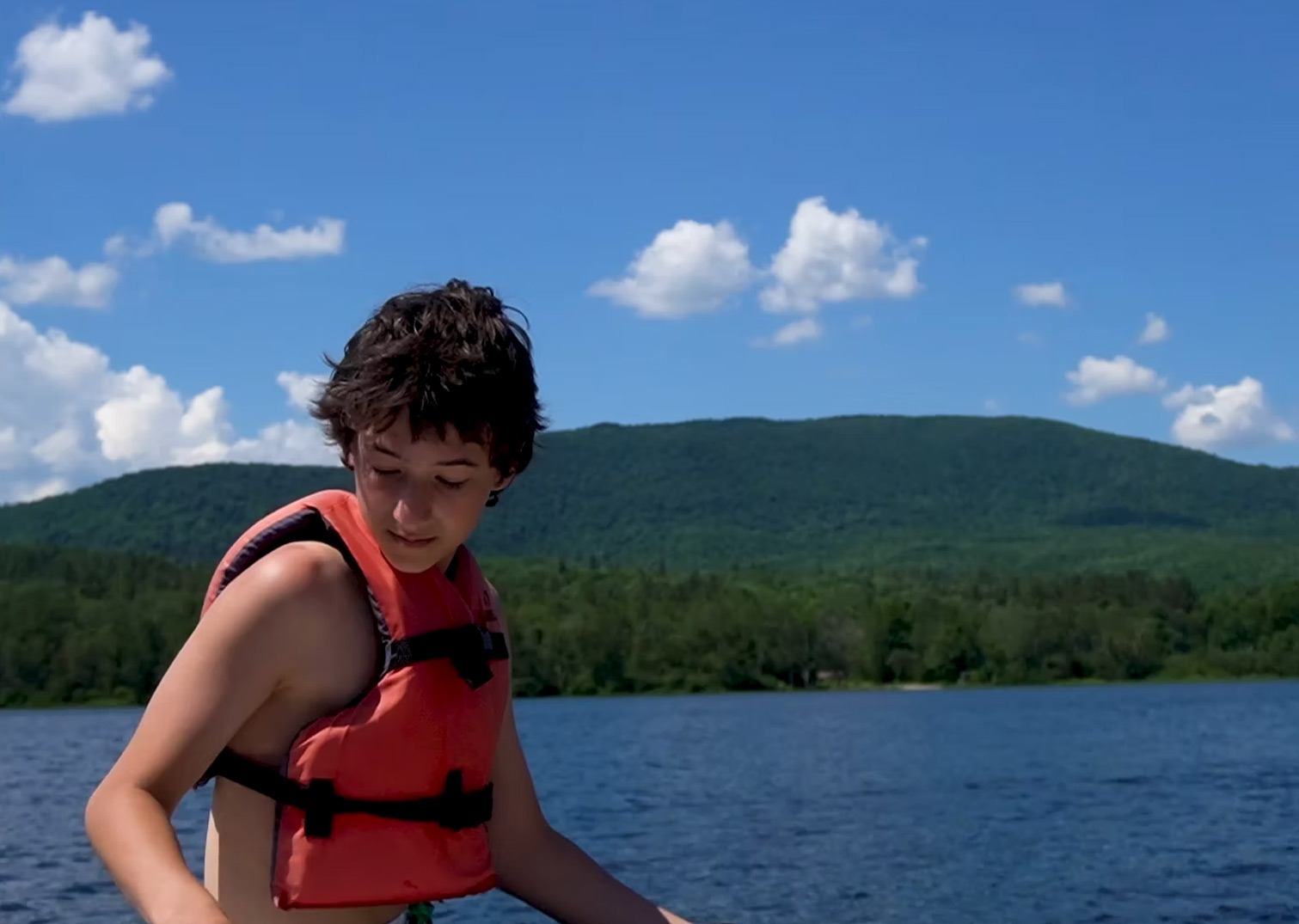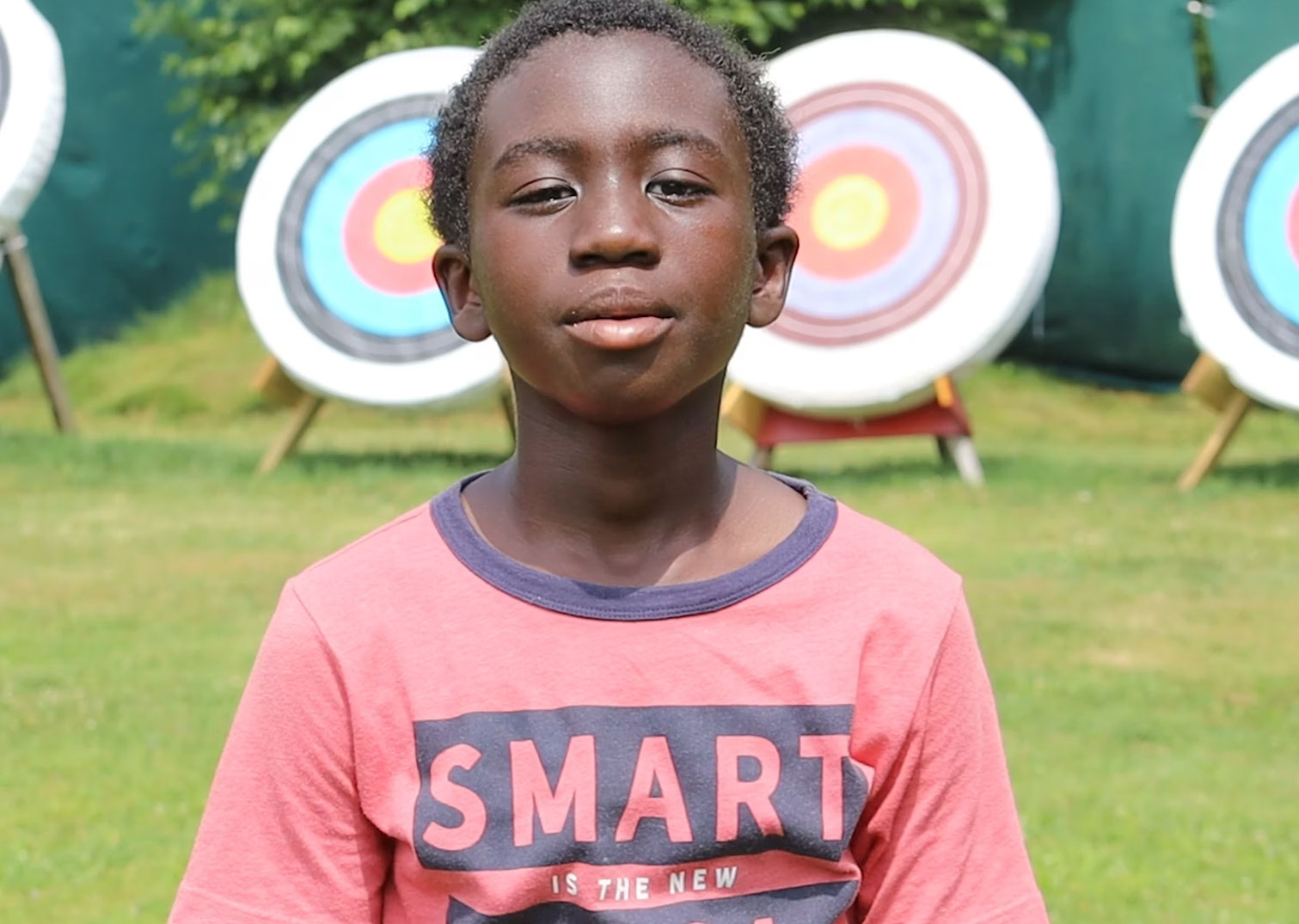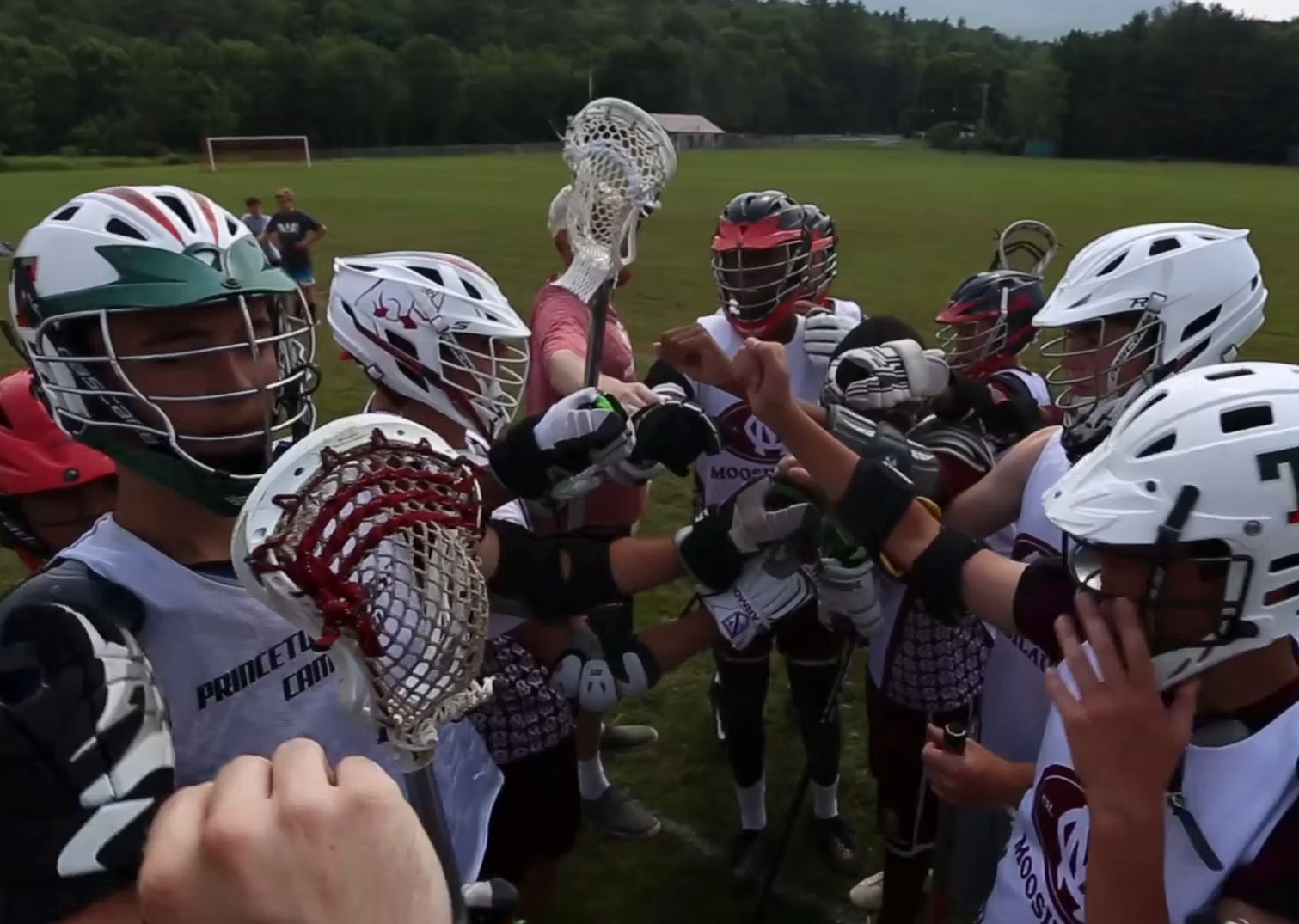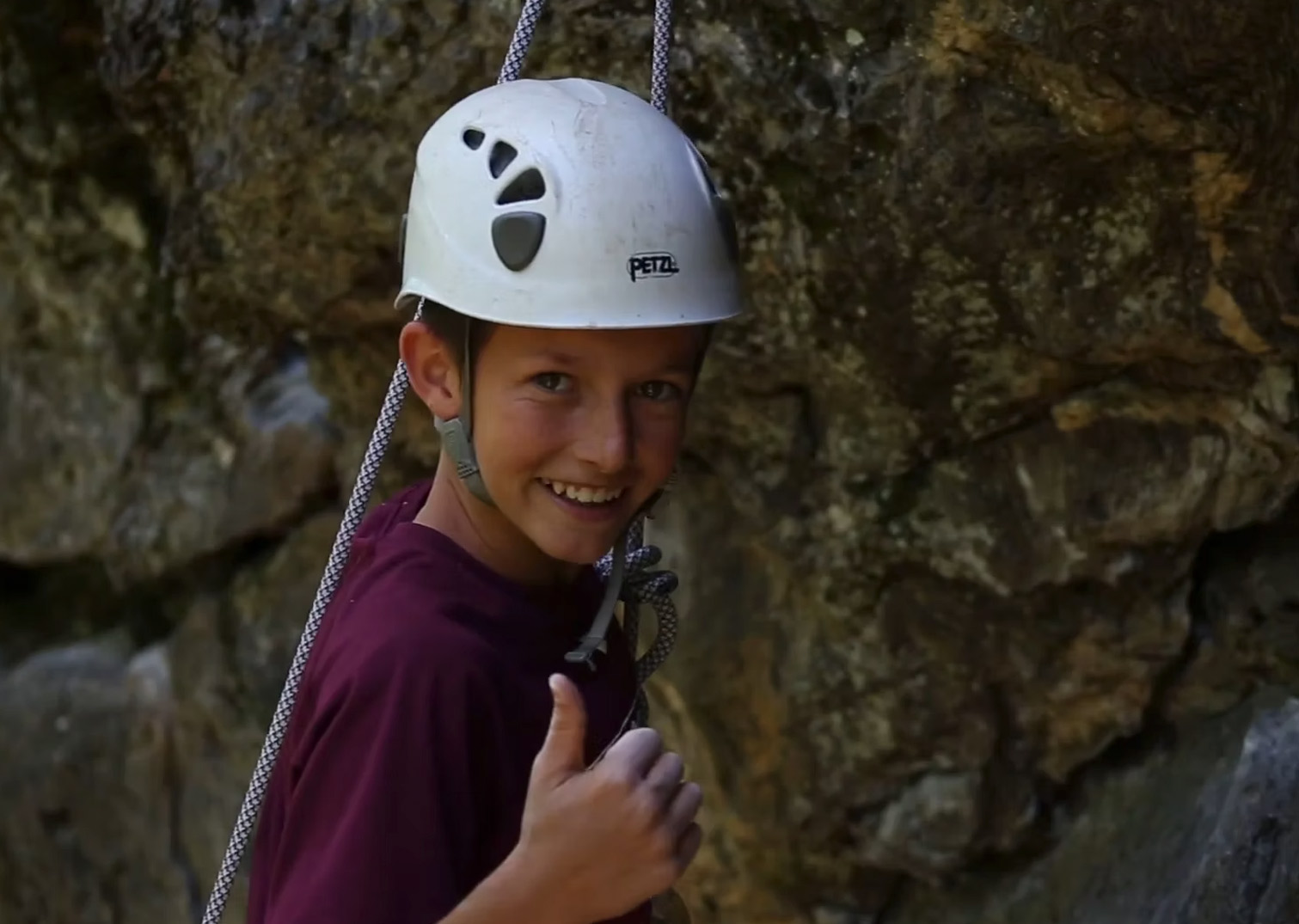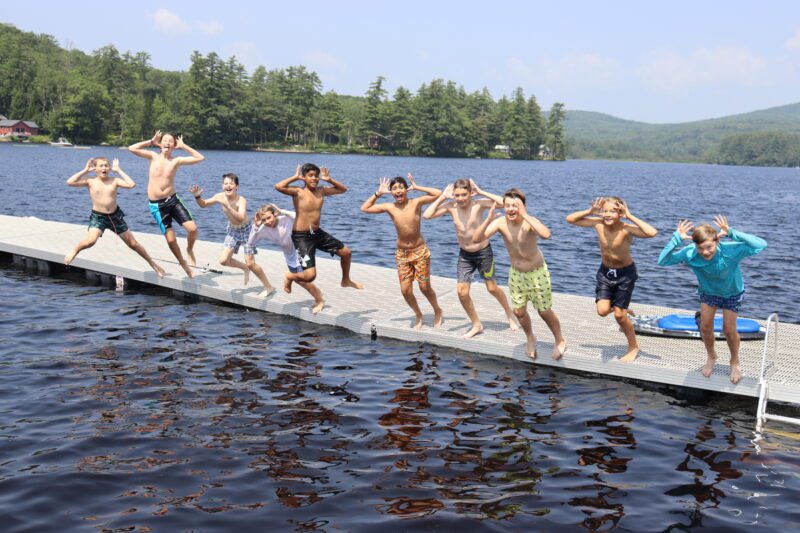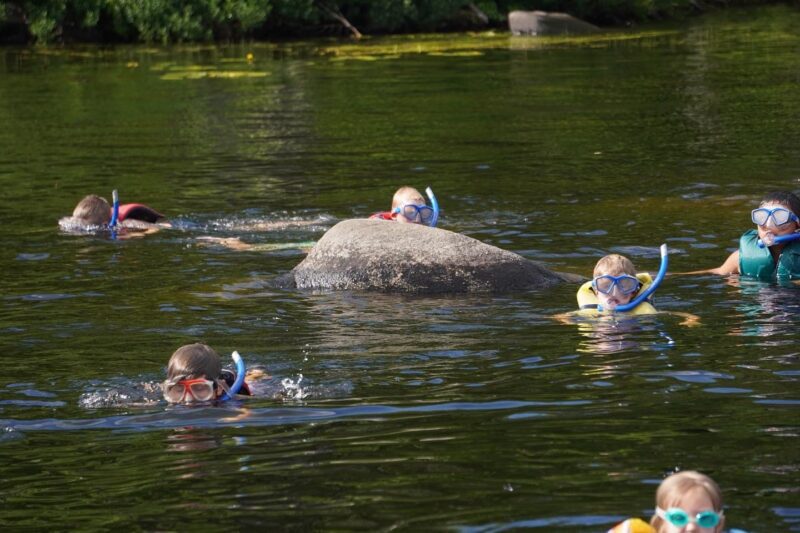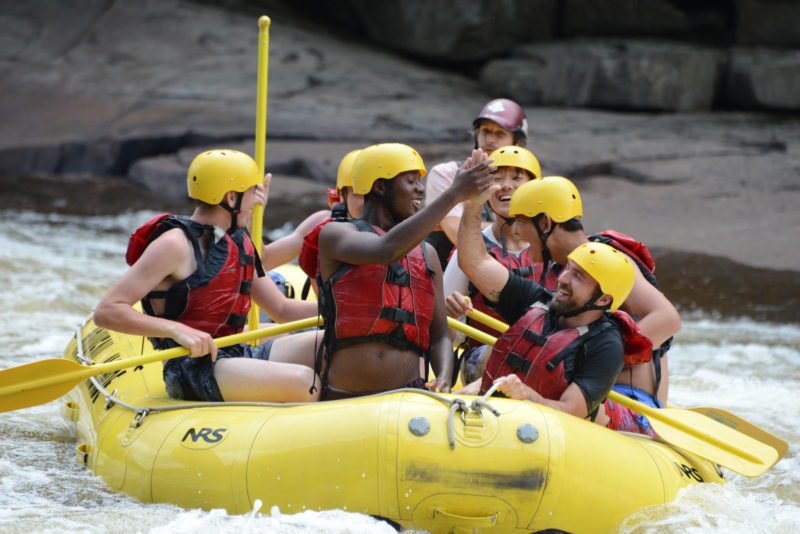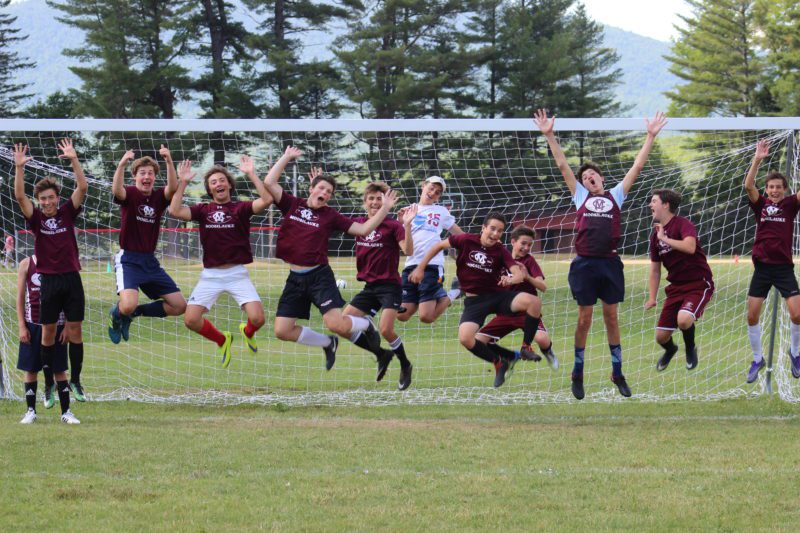The Old Camper and the Pond
by David Gordon, Head Counselor, former Camper When I was young, I had one dream that topped the list….
The Old Camper and the Pond
by David Gordon, Head Counselor, former Camper When I was young, I had one dream that topped the list….
by David Gordon, Head Counselor, former Camper
When I was young, I had one dream that topped the list. No, it was not becoming a Major League Baseball player, although I would not have minded in the least if things had worked out that way. Instead, the glory I sought could only be realized at Camp Moosilauke, on Upper Baker Pond, to be precise: to reel in the elusive “Wallfish.” The Wallfish is a very special fish. Not only does it weigh over 3.5 lbs., but since 1904, only about a dozen individuals have succeeded in catching one and seen it mounted on the wall of the Mess Hall. Oh, how I longed to be one of those fortunate souls.
In retrospect, I now see that I was somewhat fish-crazed during my camper days. I would fish at every conceivable free moment. Sometimes, I would even wake at sunrise to get out on the lake before breakfast, when the big fish were still out there feeding. Now, after 13 summers at Camp Moosilauke – without once hooking a Wallfish – aspirations of seeing my name on The Wall have begun to fade. This change of heart does not come from an attitude of resignation, far from it. Rather, my former dream has evolved. Reflecting now, I can see that my chase of the Wallfish tells a deeper story about me, one reflecting my recent decision to begin my training as a Clinical Psychologist.
One of my favorite parts about fishing at camp has always been what it requires, which is basically just hanging out on a boat with Moose compadres, floating together with the shared mission of reeling in the elusive big one. There is usually a lot of silliness on those boats, as elsewhere at camp. But, there was also an aspect of that time unique to Wallfishing and other camp activities. The intensity of social relationships at camp is hard to find elsewhere. A month at camp leads to closer relationships than a year’s worth of time in “civilian” life away from Moose. This is partially due to the sheer number of hours spent together. But there is more to it, having to do with the positive peer culture that the directors, counselors, nurses, kitchen staff, and campers at Moose work so hard to maintain. That atmosphere allows bonds to form and interpersonal growth. Nobody at Moose is excluded from feeling they belong.
Upper Baker Pond is the exception in an increasingly “connected” yet disconnected world, one in which we “communicate” without being together. The lake begs us to disengage from the sea of data, to float instead upon its gentle waters and feel one’s true self emerge. Pushing out from the beach and directing the canoe’s bow towards The Point Rock, the fisherman’s first sensations are of a the brisk breeze at his side, the sunlight reflecting off the waves, and the sounds of campers’ joy as they are skimmed along the lake on a tube pulled by a motor boat. This ability to stand apart from ordinary life is one of the reasons why I fell in love with the place to begin with. At camp, the “ordinary” seems more epic: hiking above tree-line in the White Mountains, Port’s ghost stories, dancing with a girl at a social, color war victories and defeats, and, without doubt, chasing Moose immortality by catching a legendary Wallfish.
One lesson I have learned from fishing is that, if you are dead-set on a tough mission, you’re bound to return to shore disappointed most of the time. That is, of course, if you only consider a “win” to be the impressive catch. Underneath all the surface chatter on the boat about fishing techniques and the big one that got away, something deeper is going on. Fishing provides a time and space away from the shore to become more aware. For years, I thought, “If only I could catch a Wallfish, then I’d be happy.” In truth, Wallfish don’t come around every day, and that’s the point. What I have caught on many, many such days, however, is the biggest “catch” of all. Time on the lake surrounded by all that nature offers, time to talk, to reflect and to enjoy. I hope that one day, as a psychologist, I will be able to offer just that kind of sanctuary to patients in a sometimes confusing and hectic world.
As a camper and through my early years as a counselor, I wanted my own Wallfish up at the Dining Hall because camp was so central to how I saw myself. As the years went on, camp has remained important to me, but Wallfish glory is less so. Now, my focus is on how I can impact campers and fellow counselors in the Moose tradition. As a camper, I learned how to interact with others and to become competent at tasks like sailing, archery, and hiking. I learned to maintain wonder and wisdom in a challenging world. As a counselor, camp has helped me to consider the needs of others and the consequences of my actions.
Over the years I have seen campers catch Wallfish. I tip my fisherman’s cap to them. When asked if I am jealous to see their names on The Wall, I answer no. I have found a different prize, the light in the campers’ faces as the wood- carving of their fish is hammered in place. Nothing could make me happier.


